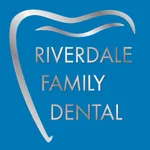Pediatric dentistry is the study, practice, teaching, and research of oral care treatments and preventions in children. It is recommended that children visit their pediatric dentist twice a year. Parents should schedule the first visit within six months of their child’s first baby tooth coming in, or by 12 months of age. Regular checkups thereafter will help prevent oral health complications as your little one grows up.
Pediatric Dental Procedures
Brushing and flossing every day is the best way to prevent cavities and gum disease. However, if your child has aggressive signs of an oral disease, home hygiene will not do the job on its own and restorative treatments will be necessary. Such pediatric dental treatments include:
- Tooth fillings: Cavities and irreversible tooth enamel erosion will need to be treated with fillings. These complications usually occur from a poor diet of excessive acidic liquids and foods, as well as inadequate home hygiene. Baby teeth are more likely to be affected than permanent teeth because the enamel is thinner and less mineralized. The filling will help prevent the cavity from progressing.
- Pediatric pulp therapy: A baby root canal is similar to its root canal counterpart in the way that the pulp inside a tooth will be treated in an effort to save or restore it.
- Crowns: Made of stainless steel, crowns are placed on a child’s baby molars in an effort to protect them. This could be because the teeth have not formed properly or are already very decayed.
- Tooth extractions: Removing a tooth might be necessary if your child is experiencing trauma, disease, overcrowding, or decay.
- Space maintainers: After a tooth is extracted, a space maintainer is placed at the extraction site to ensure that your child’s tooth erupts properly.
Preventive Pediatric Dental Treatments
To ensure that your child has all possible defenses to fight tooth decay, plaque, and tooth loss, there are two preventive dental treatments available. These treatments include:
- Sealants: A thin coating is placed on the deep pits and grooves of baby and permanent teeth to help prevent tooth decay.
- Fluoride treatment: A mineral that has been proven to decrease the progression of cavities. Since its introduction to the water supply in 1945, dental cavities in children and adults have significantly decreased. Your child can get fluoride in two other ways:
- Dietary fluoride supplements: Offered in tablet or liquid form, this supplement is only recommended for those who drink water low in fluoride or have a higher risk of developing cavities.
- Topical fluoride therapy: This treatment is best used for children between three and six years old. It comes in a variety of forms, such as over-the-counter fluoridated toothpaste, gels, pastes, or varnishes. The applied treatments are done only in a professional dental office.
